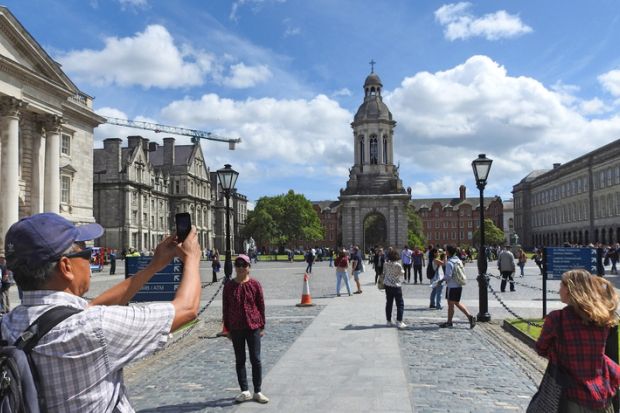The president of the Republic of Ireland has issued a stark warning that the “ruination” of the university tradition is “at hand”, with scholarship and teaching threatened by both authoritarian politicians and a subservience to the “utilitarian reductionism” of market ideology.
Michael Higgins, a poet and former Irish Labour politician who had a brief career as a sociology lecturer, suggested that all incoming students should be taught a module on the role of universities.
Speaking at a conference on “Academic Freedom and Intellectual Dissent” on 8 June, Mr Higgins warned that it was a “perilous juncture in the long history of the academy”.
“Universities as sites, sources and experiences of learning, have for several decades now been under continuous attack,” he warned delegates to the conference, which was organised by Scholars at Risk and All European Academies.
While Mr Higgins did address more recent assaults on academic freedom by ascendant authoritarians, he argued that free inquiry has been under pressure for decades from a drive to turn universities into “market-driven” organisations.
Universities “have suffered an attrition of range and depth, loss of interdisciplinary exchange, leading in too many cases to a degradation of the very scholarship and teaching for which they were established”, he said.
“Such adjustments have usually been rationalised as an inevitable search for relevance, often in the name of market forces and the inexorable drive towards a utilitarian reductionism that is now so pervasive,” he continued.
An ideology of “unrestrained market dominance” has taken hold, he said, and squeezed the space in universities to ask any questions “beyond ones of a narrow utility”.
The teaching of economics, for example, had degraded from questions of “moral economy”, through “political economy”, to now merely being a “technical training in measurement”.
He took aim at university presidents and rectors who “often describe and introduce themselves as CEOs of multimillion-euro enterprises rather than as academics first and foremost”.
For centuries, universities had spearheaded “new movements of thought, new paradigms of existence”. But with this raison d’être under threat, Mr Higgins speculated whether universities might become “the tourist attractions of the future”.
“It is not an overstatement, I believe, to make the argument that the ruination of the university tradition, by a process of attrition, surrender to the quiet hegemony of that which is really unaccountable, is at hand,” he said.
He defended tenure as “essential” to academic freedom and lamented the “precarity of so many scholars”.
Mr Higgins also made a concrete suggestion: “Teach a module on the nature and role of the university, including the cornerstone of academic freedom, to every incoming university student, raising awareness of the importance of such freedom.”
He was followed at the conference by the philosopher, political critic and linguist Noam Chomsky, who cautioned that the degradation of academic freedom and independent thought in universities has always been a worry – critics bemoaned the fact that many intellectuals had lined up to cheer their respective governments in the First World War, or the Vietnam War in the 1960s and 1970s.
But still, academic freedom had been curtailed by a switch in the 1980s away from state-backed, hands-off funding towards “more short-term, applied projects under tighter control from funders”, leading to the “vulgarisation” of research, he argued.
Register to continue
Why register?
- Registration is free and only takes a moment
- Once registered, you can read 3 articles a month
- Sign up for our newsletter
Subscribe
Or subscribe for unlimited access to:
- Unlimited access to news, views, insights & reviews
- Digital editions
- Digital access to THE’s university and college rankings analysis
Already registered or a current subscriber? Login







